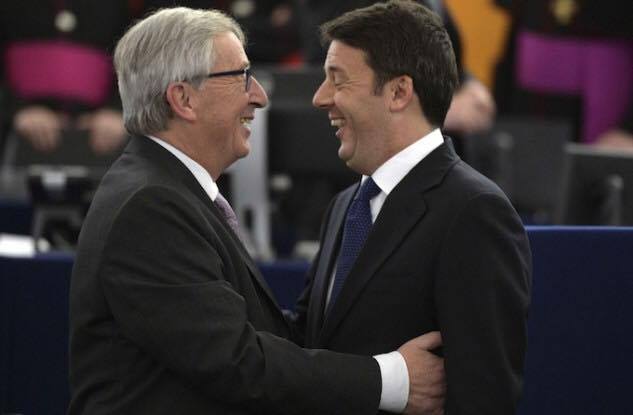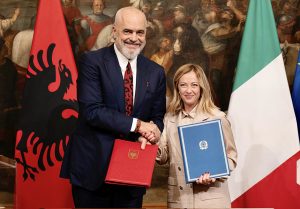Abbiamo letto con grande attenzione l’editoriale firmato dal Presidente del consiglio che il Guardian ha pubblicato giovedì (lo trovate a questo link), e non concordando con l’enfasi con cui Renzi descrive l’operato del suo stesso Governo, abbiamo deciso di inviare alla redazione del Guardian una nostra risposta, che trovate qui di seguito.
As anyone who cares for the future of Europe, we think it’s time for some serious discussion about the course of action our political institution must take in order to find a solution to the many issues our continent is facing.So it is with great apprehension that we have read the editorial written by our prime minister for your newspaper. What we have read, we must say, it’s not what we would have liked to hear from our prime minister. That’s why we would like to present you with a different view of the issues discussed in Renzi’s column.
Sadly, we don’t share our prime minister’s enthusiasm over our current political situation. Italy isn’t any way nearer to a solution to its social, economical and political crisis. An ill-conceived constitutional reform won’t be of any help, in this situation. Taking away the electoral power from our citizens and giving it to our regional representatives is hardly a remarkable and positive change in our system. Giving more power to the executive branch of our government was a primal concern of no one other than our executive branch itself. Our prime minister has often been able to accomplish all the impressive number of reforms, as he constantly reminds us and everyone he talks to, at the expense of our legislative branch and the health of our democracy. Basing all his platform on the assumption that “there is no alternative” (something the English people should be familiar with), and stripping voters of their right to choose their representatives is not a good way, in our opinion, to prevent the rise of populism in our country. If people feel there isn’t any space for their voice to be heard and for their needs to be addressed properly, they will more easily turn to those who provide them with a quick solutions and who claim to be their only champions.
If there’s something all populists have in common is their tendency to represent this mysterious and unspecified moloch named “Europe” as the source of all our problems, so we can’t help but feel concerned by the edgy way our Prime Minister deals with the problem our Union is facing.
There’s actually something that’s not working in Europe, as Matteo Renzi has written, but it’s the European Council, the very institution he is part of. If Europe has been “missing in action”, as he pointed out, it’s because he and his colleagues are not willing to work together to address the issue our continent is facing. Their main concern is (and has always been) to preserve the approval of the public opinion of their countries, blaming “Europe” every time their short sighted politics don’t show any of the promised results.
Europe’s states governments are to blame if we are still far from having a continental approach in our foreign affairs, in our immigration and in our fiscal and financial policies, just to name the most prominent problems we should be dealing with as a Union. Using a generic “Europe” as a scapegoat for the misgivings of the European Council is only going to favour the rise of this populistic anti-Europeanism wave.
So, when looking for an enemy in Europe, our prime ministers should probably take a look in the mirror.
Italy should have its voice heard, but we’d like to hear some serious and really revolutionary word coming out from it, the next time our prime minister makes it into the international news.












